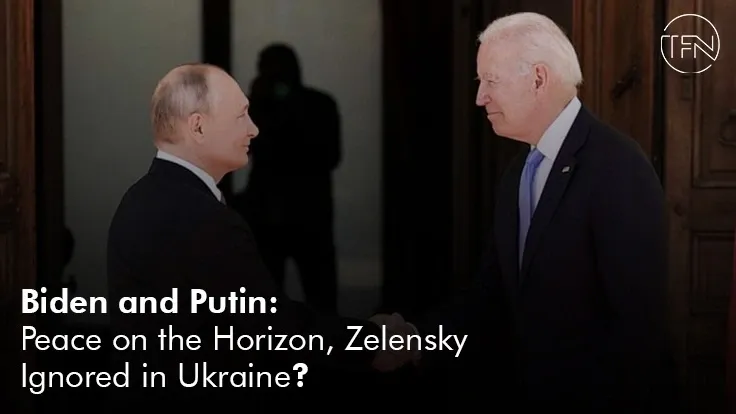After 10 months, with more than 10,000 deaths, and a devastated country, Russia and a significant ally of Ukraine have hinted that perhaps it's time for negotiations. So far, Ukraine has been opposed to such a position. Given that each Russian missile is met with an equivalent Ukrainian missile, there is little chance of a de-escalation.
That did not advance their cause. Russia has retaliated forcefully by assaulting Ukraine's vital infrastructure, which is where it hurts the most. The efforts of Zelensky's military to confront Russia have increased costs for the West. Unquestioned military, financial, and political aid worth billions have been given to Ukraine.
But is this starting to get a little too much for the West now? Are we witnessing the beginning of the Russia-Ukraine War's end?
To stop the war, US President Joe Biden stated on Friday that he is ready to engage with Russian President Vladimir Putin.
"I'm willing to talk to Mr. Putin. If he is actually seeking a solution to stop the conflict and has an interest in him aside from that, "He hasn't yet done it," Biden stated.
For the record, since the beginning of Moscow's invasion, the two leaders have not personally interacted. But the lines of contact between the two countries have remained open.
Additionally, Biden stated that if Putin were interested, these discussions would only take place if NATO and Ukraine were open to them, which currently looks improbable. The White House then intervened and refuted what Biden had said. "We're just not at a stage presently where talks seem to be a constructive route to approach right now," National Security spokesperson John Kirby said.
In terms of assistance to Kyiv, the US has taken the lead. The Biden administration has given them more than $18.2 billion since February. It provided Ukraine with some of the best weapons to counter Russian aggression.
It ultimately led to the depletion of both NATO and its arsenal. However, the Biden administration has been very explicit that it will continue to provide aid to Ukraine. Even though some Americans want to stop writing Ukraine "blank checks," they contend that by doing so, the US is not only diminishing its resources but also raising the possibility of a conflict with Russia.
The West anticipates that Russia will leave Ukraine and return Europe to normalcy. Russia, however, is unconcerned. After Biden's remarks, the Kremlin declared that it was willing to negotiate but would not agree to the West's demand that Ukraine is left alone.
Not only that, but Moscow also wants the West to recognize the four areas—Donetsk, Kherson, Luhansk, and Zaporizhia—that it annexed from Ukraine three months ago.
That most certainly won't occur. The West would do so to legitimize what is, in fact, Ukrainian territory. Demetri Peskov earlier told reporters that Putin is still open to negotiations to protect his interests.
"What exactly did President Biden say?" he questioned. Conversations, he claimed, are only possible after Putin has left Ukraine. Moscow won't take that action."
The ball has now been returned to the western goal by Russia. Moscow retreated to enable the two parties to sit down for negotiations, and it accepted that even some European countries want the war to end.
Even the US has been quietly pressuring Ukraine to tone down its rhetoric about not wanting to communicate with Russia.
It appears that such a protracted struggle is wearing on the West.

